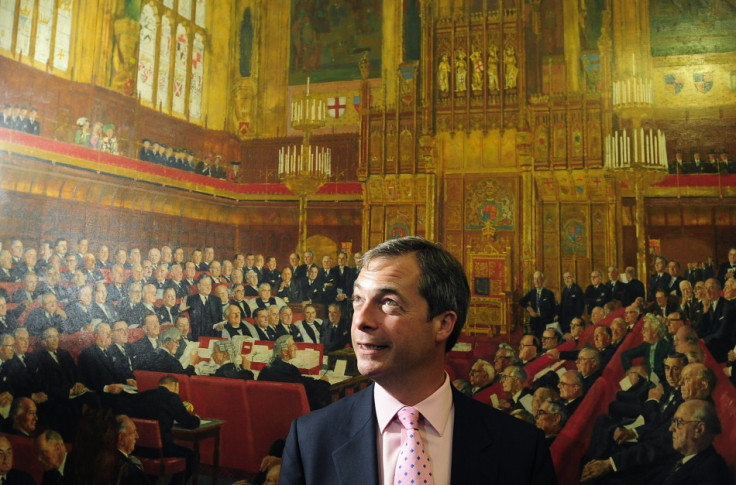Local Election Results 2012: UKIP Continue to Annoy Conservatives

UKIP has made its mark once again taking around 13 per cent of the vote according to the local election results released so far, just a few points behind the Liberal Democrats who are on 16 per cent.
Of course it being UKIP, the party has failed to translate this rise in support (last time round they managed just an eight per cent of the vote) into greater representation, having made a net gain of only one councillor so far.
Already we are seeing yet more signs that the higher and wetter echelons of the Tory party are getting jumpy about the party that David Cameron (the highest and wettest of them all) once described as being made up of "fruitcakes and closet racists".
The attempted smears appeared to continue last night when the useless Baroness Warsi, co-chair of the Tory Party wondered if there might be a link between the fact that the number of UKIP candidates had risen by 14% while the number of BNP candidates had dropped by 14%.
Baroness Warsi is not the first person to apparently attempt, however subtly, to link UKIP and the BNP. There is little doubt that UKIP has some undesirables lurking in it - which of course no one could ever say about the whiter than whiter Tory Party or the Labour Party for that matter.
But while the BNP and UKIP both wish to leave the European Union (along with large numbers of people in the country if polls are to be trusted) the two could not be more different in most other respects.
While the BNP advertises itself as "the Labour Party your grandfather voted for", UKIP leader Nigel Farage has described his party as the "conscience" of the Tories (ah - so that's where it went).
Indeed one only needs to look at the personnel of UKIP to see that far from being a middle class version of the BNP it is in fact a home away from home for Thatcherite Conservatives. Nearly all of UKIP's leaders have been at one point or another members of the Conservative Party, while defections to or from UKIP are generally between it and the Tories rather than with the BNP.
It is therefore not only dubious for Baroness Warsi to play with the idea of a UKIP/BNP link but most unwise as the people she is potentially linking to the hated BNP are quite likely to be former Tory voters or the kind of people who actually do vote Tory at general elections even if they do not do so at local or European elections.
What the Tory party needs to realise is that rather than belittle UKIP they should take them seriously. How many seats and perhaps even councils the Tories lost in this election because of former Tory voters turning to UKIP is as yet unknown but it is arguable that it was a sizable UKIP vote which cost them the general election.
In 2010 nearly a million people voted UKIP, a 50 per cent increase on the number of votes it received in 2005. This significant chunk of the electorate did not give UKIP any seats but it may well have cost the Tories as many as 21 seats, which would have given Cameron's party a majority of one.
UKIP is therefore not only the conscience of the Conservative Party but a significant and apparently growing thorn in its side and a debilitating one at that. If the Tories wish to remove that thorn they might be better advised to try and woo back their former voters and members rather than pretend that UKIP are "fruitcakes and closet racists".
Will they do so or will the Conservatives continue as they have done so far? Should they go for the latter they may regret it at the European Parliament elections in 2014, which some are now predicting could be UKIP's for the taking? Even if this does not come to pass dare the Tories risk ignoring UKIP at the general election in 2015 after years of "Tory cuts" and little or no economic growth. In that battle it might be useful to have the party that wants further cuts and lower taxes on side.
© Copyright IBTimes 2024. All rights reserved.





